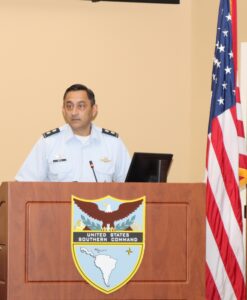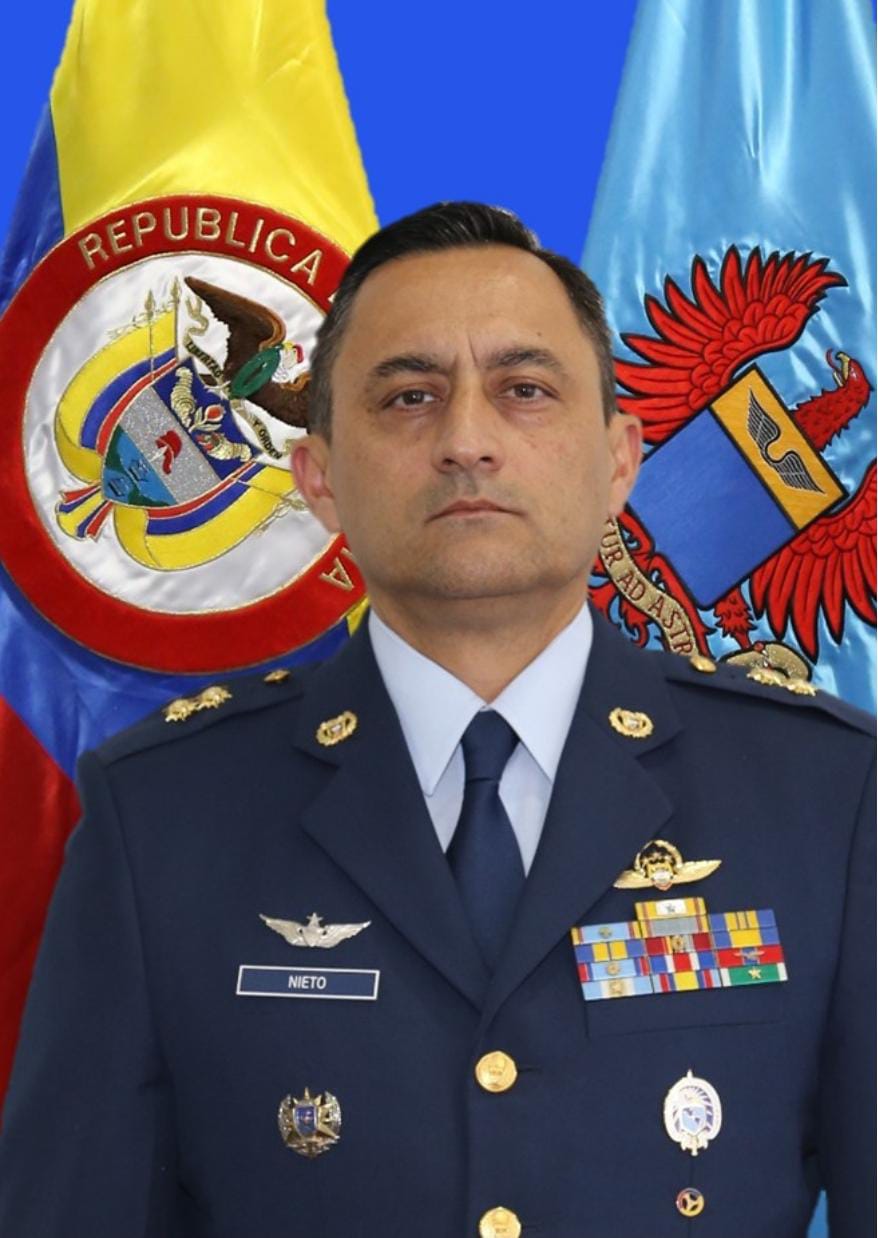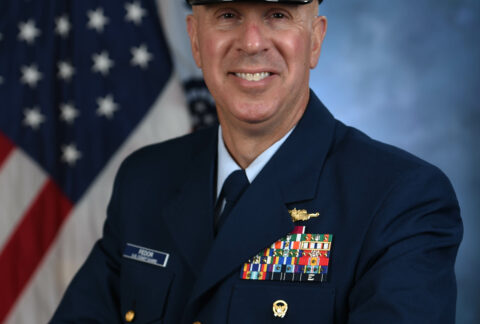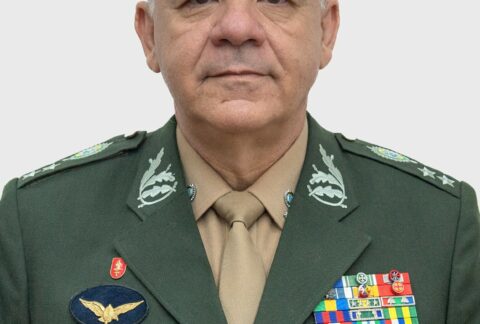Colombia is committed to strengthening its space capabilities for the benefit of its people. Those were the words of Colombian Air Force (FAC) Brigadier General Luis René Nieto Rojas, Air and Space Operations commander, to participants of the Space Conference of the Americas, held at the headquarters of U.S. Southern Command (SOUTHCOM) in Miami, Florida, January 30-31, 2023.
Brig. Gen. Nieto spoke with Diálogo about the FAC’s aerospace advances.
Diálogo: What is the importance of Colombia’s participation in the Space Conference of the Americas?
Colombian Air Force Brigadier General Luis René Nieto, Air and Space Operations commander: It’s important for Colombia to be present at this conference because we share with SOUTHCOM and with U.S. Space Command the purpose of strengthening our space capabilities. This conference gives us a unique opportunity to share experiences, learn about, and align ourselves with the new projects that are being carried out in this area, which are important to know about, since they can enrich Colombia’s space program, which we’ve been working on for more than 15 years.

Diálogo: The conference brought together 11 countries from the Western Hemisphere. How do you see the integration of these countries in the space arena?
Brig. Gen. Nieto: The participating countries have many queries in order to find the most appropriate ways to continue building our space programs, which is why the conference is vital, precisely to share these experiences and seek the best way to strengthen our capabilities and continue with the programs we have.
Diálogo: What progress has Colombia made in space matters?
Brig. Gen. Nieto: We’re about to launch our second satellite, FACSAT-2 Chiribiquete, in April. In 2022 we will inaugurate the FAC’s Space Operations Center (SpOC), located in the Military Aviation School in the city of Cali. The SpOC enables the analysis of geospatial information from earth observation and other applications and integrates data processing and Big Data analysis, which is a strategic asset for the country. At the same time, the SpOC strengthens the operational part of the whole spatial concept that the FAC has, which allows the use of these capabilities for the benefit and well-being of Colombians in areas such as environmental management, risk management, mineral and energy resources, health, basic information, regional urban planning, productive systems, the effects of climate change in the country, and applications in security and defense.
Diálogo: What is Colombia’s greatest challenge in the space field?
Brig. Gen. Nieto: The main challenge is to be able to continue with the FACSAT space program, so that the space industry in Colombia can develop, including the manufacture and integration of satellites in the country, where the scientific capacity of the universities converges with the industry and all the experience and knowledge achieved by the FAC in space matters up to now. The political will exists, but we need to make laws and state policies that will make it possible in the long term to consolidate our position in the space race in which we find ourselves with an arduous task of constant study, research, innovation, planning, and technological incursion in order to dominate in the air, space, and cyberspace and for the country to become a regional reference in space projects with a positive impact and mutual benefit for everyone in the region.
Diálogo: What is your biggest challenge at the head of the command?
Brig. Gen. Nieto: My most important challenge is management and operation of space assets, incorporating them into the multidomain operational level. The other challenge is the dual use of space capabilities, from the different products. We are working with the conviction of persistence precisely in this objective, with the support of the education area with the universities, private enterprise, and the state represented in the FAC, this challenge will really be a factor of success for what we want to achieve.
Diálogo: What would be your message to the countries participating in this conference regarding this topic?
Brig. Gen. Nieto: We have to link up and work as a team. We definitely have to take that step, but we have to structure projects and programs that are well grounded, with clarity, with some phases that we have to follow, and with the support of experienced countries like the U.S. and others in the region that have already taken those first steps.









